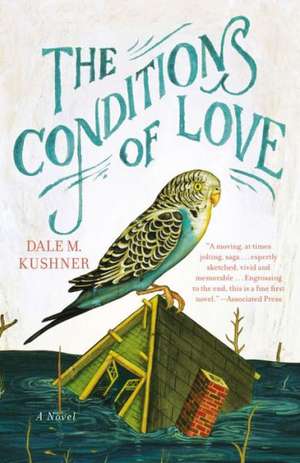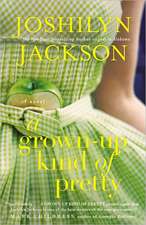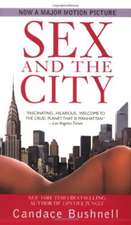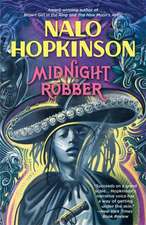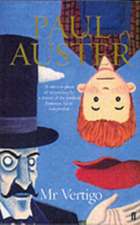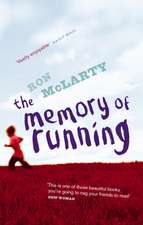The Conditions of Love
Autor Dale M. Kushneren Limba Engleză Paperback – 5 mai 2014
This engaging examination of a mother and daughter's relationship will appeal to the same audience that embraced Mona Simpson's acclaimed classic Anywhere But Here and Elizabeth Strout's bestselling Amy and Isabelle.
| Toate formatele și edițiile | Preț | Express |
|---|---|---|
| Paperback (1) | 179.46 lei 6-8 săpt. | |
| Grand Central Publishing – 5 mai 2014 | 179.46 lei 6-8 săpt. | |
| Hardback (1) | 324.46 lei 6-8 săpt. | |
| Grand Central Publishing – 13 mai 2013 | 324.46 lei 6-8 săpt. |
Preț: 179.46 lei
Nou
Puncte Express: 269
Preț estimativ în valută:
34.35€ • 37.32$ • 28.87£
34.35€ • 37.32$ • 28.87£
Carte tipărită la comandă
Livrare economică 22 aprilie-06 mai
Preluare comenzi: 021 569.72.76
Specificații
ISBN-13: 9781455519743
ISBN-10: 145551974X
Pagini: 384
Dimensiuni: 133 x 203 x 25 mm
Greutate: 0.32 kg
Editura: Grand Central Publishing
Colecția Grand Central Publishing
ISBN-10: 145551974X
Pagini: 384
Dimensiuni: 133 x 203 x 25 mm
Greutate: 0.32 kg
Editura: Grand Central Publishing
Colecția Grand Central Publishing
Notă biografică
Dale M. Kushner graduated the Vermont College MFA Program in Creative Writing, and founded The Writer's Place, a literary center in Madison, Wisconsin. Ms. Kushner is a recipient of a Wisconsin Arts Board Grant in the Literary Arts, a fellowship at the Wurlitzer Foundation in Taos, New Mexico. As well, she was a participant with other leading writers in the recent Fetzer Institute's first writers' retreat on compassion and forgiveness. Her work has been widely published in literary journals including IMAGE, Poetry, Prairie Schooner, Salmagundi, Witness, Fifth Wednesday and elsewhere. Her most recent poetry book More Alive Than Lions Roaring was a finalist for The May Swenson Poetry Award at Utah State Press, The Prairie Schooner Book Competition, the Agha Shahid Ali Prize at University of Utah Press and The Tupelo Prize.
Ms. Kushner has been a long-time investigator of the intersection between writing and spiritual life. She is currently on the faculty of The Assisi Institute in Brattleboro, VT, a teaching center that serves as an international focus point for leading thinkers and groundbreaking conversation on the work of C.G. Jung and the relationship between psyche and matter.
She lives in Madison, Wisconsin with her family and dog, Carmelita. This is her first novel.
Ms. Kushner has been a long-time investigator of the intersection between writing and spiritual life. She is currently on the faculty of The Assisi Institute in Brattleboro, VT, a teaching center that serves as an international focus point for leading thinkers and groundbreaking conversation on the work of C.G. Jung and the relationship between psyche and matter.
She lives in Madison, Wisconsin with her family and dog, Carmelita. This is her first novel.
Recenzii
A teenage girl endures fire, flood and the loss of her parents in this bracing, oddly uplifting debut.
As this coming-of-age novel begins in 1953, narrator Eunice is living in a small Illinois town with her mother, Mern, whose affection for Hollywood movies is nearly matched by her erratic behavior and questionable taste in men. Eunice's reprobate father is out of the picture, but when he returns for just one day to take her to a carnival, it's transformative for her. Alas, dad is back in the shadows fast, and Mern's boyfriends don't last long either, signaling the grand theme of this novel: The love of others is something that always seems to slip just out of reach. A nearly biblical flood separates Mern and Eunice, putting the girl in the care of Rose, a flighty but compassionate earth-goddess type, and the knowledge about nature that Eunice picks up serves her well when she falls into the orbit of an attractive farmer named Fox-until catastrophe strikes yet again. Kushner seems to have taken more than a few lessons from Joyce Carol Oates about both crafting a novel with a broad scope and putting female characters through the wringer. But there's also a lightness to Eunice's narration that keeps the Job-ian incidents from feeling oppressive-she's observant, witty and genuinely matures across the nine years in which the novel is set. Kushner makes some structural missteps-for instance, she delays revealing much detail about Fox, which dulls his character early on and blunts the impact of the novel's climactic drama. But Kushner is remarkably poised for a first-time novelist, offering an interesting adolescent who's possessed of more than a little of Huck Finn's pioneer spirit.
A fine exploration of growing up, weathering heartbreak and picking oneself up over and over.—Kirkus
When Eunice is 10 years old, her father comes back to Wild Pea, Illinois, and promises to buy her a horse. She never sees him again. Her mother, Mern, is heartbroken but soon comforted by the attentions of the flawed but loving Sam Podesta. Eunice grows up fighting for love from the people who should love her unconditionally but is bolstered by love from unexpected sources, her downstairs neighbor, a Holocaust survivor, and her pet turtle, Eunice Turtle. As a young teenager, she is literally rescued by Rose, a patient teacher, who loses her to foster care and Eunice's first stirrings of romantic love. Eunice is a lonely, artistic girl who grows into a temperamental young woman whose strength and capacity for love belie her tough upbringing. This is poet Kushner's first novel, and her roots show; passages describing even the bleakest midwestern landscapes are artfully drawn. A coming-of-age story that wonderfully combines literary style with heartbreaking plot twists and still manages to be uplifting, even before the epilogue that ties everything together.—Booklist
As this coming-of-age novel begins in 1953, narrator Eunice is living in a small Illinois town with her mother, Mern, whose affection for Hollywood movies is nearly matched by her erratic behavior and questionable taste in men. Eunice's reprobate father is out of the picture, but when he returns for just one day to take her to a carnival, it's transformative for her. Alas, dad is back in the shadows fast, and Mern's boyfriends don't last long either, signaling the grand theme of this novel: The love of others is something that always seems to slip just out of reach. A nearly biblical flood separates Mern and Eunice, putting the girl in the care of Rose, a flighty but compassionate earth-goddess type, and the knowledge about nature that Eunice picks up serves her well when she falls into the orbit of an attractive farmer named Fox-until catastrophe strikes yet again. Kushner seems to have taken more than a few lessons from Joyce Carol Oates about both crafting a novel with a broad scope and putting female characters through the wringer. But there's also a lightness to Eunice's narration that keeps the Job-ian incidents from feeling oppressive-she's observant, witty and genuinely matures across the nine years in which the novel is set. Kushner makes some structural missteps-for instance, she delays revealing much detail about Fox, which dulls his character early on and blunts the impact of the novel's climactic drama. But Kushner is remarkably poised for a first-time novelist, offering an interesting adolescent who's possessed of more than a little of Huck Finn's pioneer spirit.
A fine exploration of growing up, weathering heartbreak and picking oneself up over and over.—Kirkus
When Eunice is 10 years old, her father comes back to Wild Pea, Illinois, and promises to buy her a horse. She never sees him again. Her mother, Mern, is heartbroken but soon comforted by the attentions of the flawed but loving Sam Podesta. Eunice grows up fighting for love from the people who should love her unconditionally but is bolstered by love from unexpected sources, her downstairs neighbor, a Holocaust survivor, and her pet turtle, Eunice Turtle. As a young teenager, she is literally rescued by Rose, a patient teacher, who loses her to foster care and Eunice's first stirrings of romantic love. Eunice is a lonely, artistic girl who grows into a temperamental young woman whose strength and capacity for love belie her tough upbringing. This is poet Kushner's first novel, and her roots show; passages describing even the bleakest midwestern landscapes are artfully drawn. A coming-of-age story that wonderfully combines literary style with heartbreaking plot twists and still manages to be uplifting, even before the epilogue that ties everything together.—Booklist
